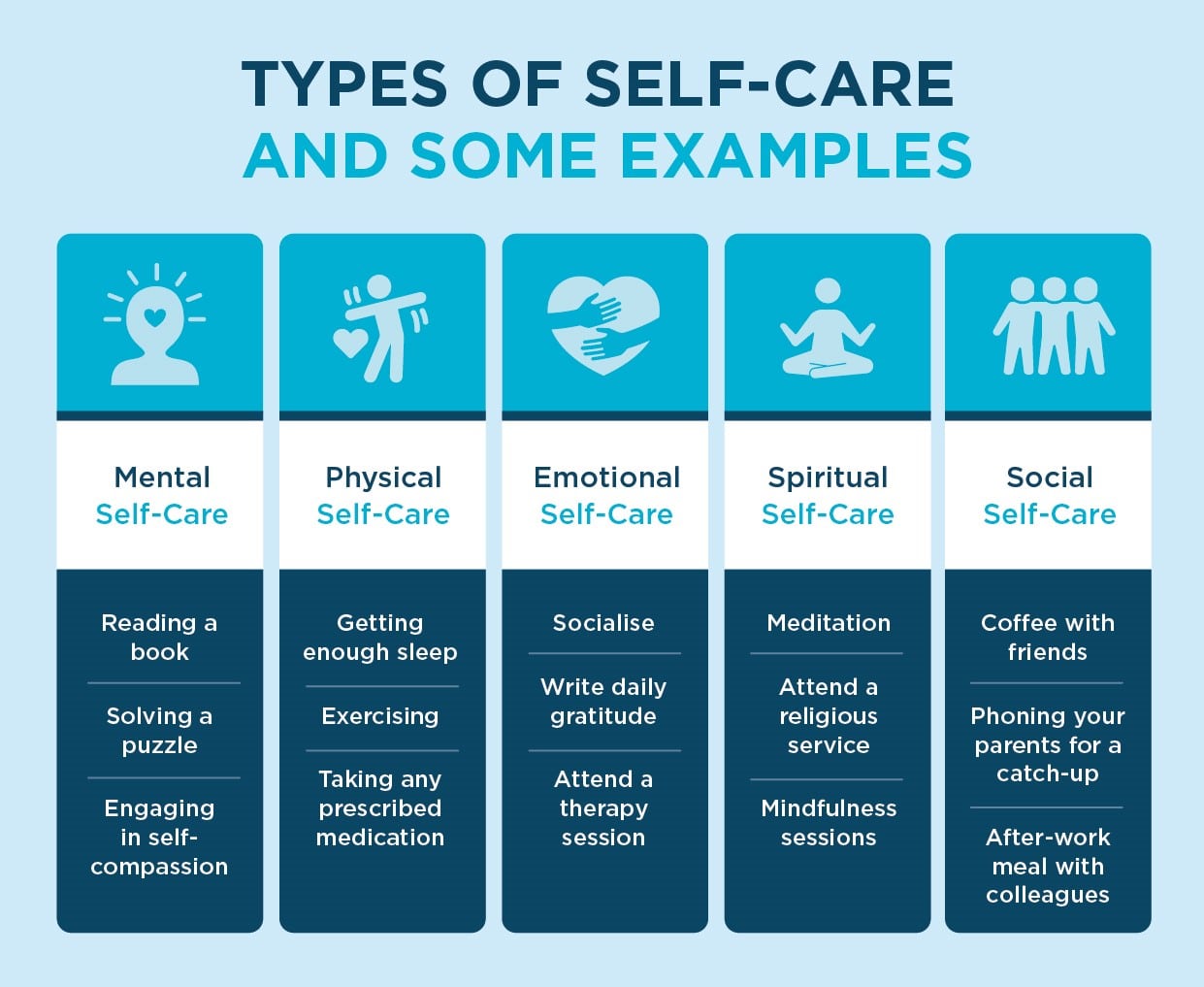Types and examples of self-care
Discover different types of self-care along with examples.
There are many different types of self-care, involving different activities. Depending on you as an individual, and any difficulties you’re currently facing, you might need to focus more on certain types of self-care than others.
Self-care is an umbrella term for engaging in all kinds of things that impact our health in a positive way – emotionally, physically, socially and spiritually.

Mental self-care is all about fine-tuning your brain and helping your mind to stay healthy. Keeping our minds sharp is vital to things like our performance at work and making good decisions. It might also contribute to good brain health in the long-term.
Mental self-care can also relate to maintaining a healthy inner dialogue with ourselves. Building a positive mind set and working on your self-esteem are things you can work on as part of mental self-care.
Your body and your mind are interconnected. Spending time focusing on keeping them both healthy is an important aspect of a holistic self-care routine. They often interplay with one another too, as keeping your body fit and healthy will lead to you feeling happier and less stressed.
Physical self-care also relates to how you’re caring for your body’s physical health. Eating a healthy, nutritious diet, sleeping well and attending any necessary doctor’s appointments are all aspects of physical self-care too.
Emotions such as anger, anxiety, stress, sadness and grief are all natural responses to things that are going in your life. Emotional self-care can help you to process, accept and deal with these emotions in an effective and healthy way.
Emotional self-care could be physical or creative in nature, or it could be something as simple as chatting with a friend – anything that helps you connect with your feelings.
Spiritual self-care refers to your spirit, or the idea of something bigger than yourself. Spirituality, which is defined by the idea that there's more to the world that what we see and feel in the physical world, is often associated with religion. However, you don't need to be religious to adopt spiritual self-care practices. Anything that helps you develop a deeper understanding or connection with what’s around you counts as spiritual self-care.
For people undergoing treatment for addiction, spirituality can play a significant role. Fellowship groups, where likeminded people share their experiences of battling addiction, often include elements of spirituality.
Humans are social beings. Harvard’s famous study of adult development, which has now been running for over 80 years, suggests that we’re happier and healthier when we have strong social connections. Establishing and maintaining those connections is exactly what social self-care is all about.
Everyone’s different, so take some time to work how much time you should dedicate to developing the relationships you have with family, friends and colleagues.
The above are widely considered to be the five core types of self-care, but there's no absolute set list. Many other types of self-care exist, with plenty of overlap between them. You might also come across: